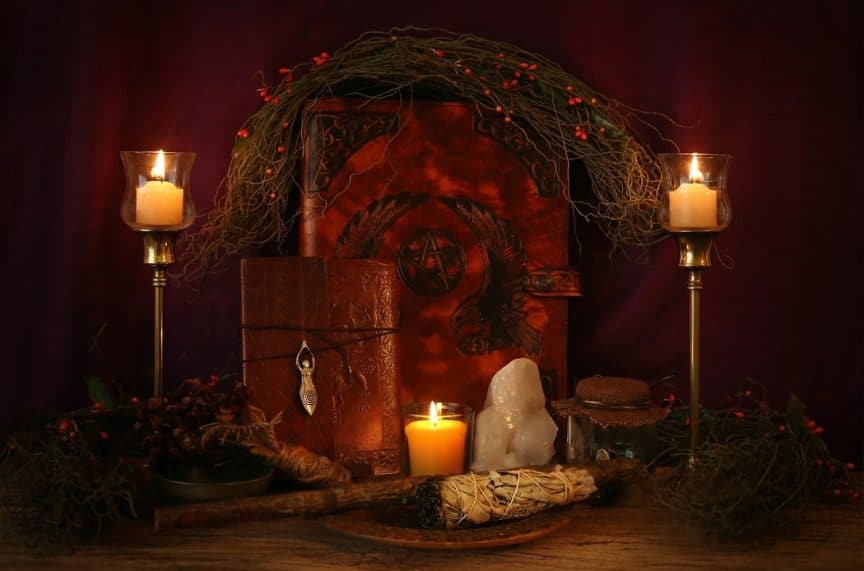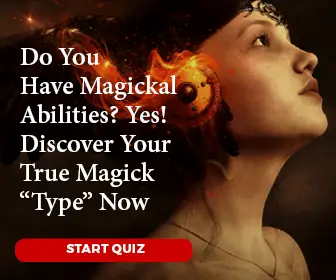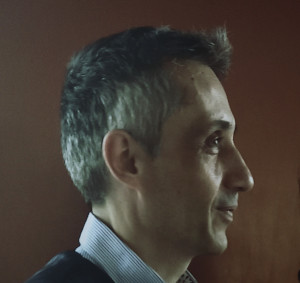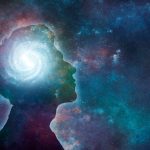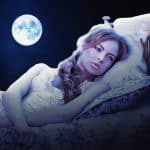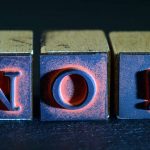The ability to think seems to set us apart from other creatures. And although we are concerned with living in the physical world, we are mental beings.
The fact is we are thinking all the time. Experts estimate that the mind thinks between 60,000 – 80,000 thoughts a day. We schedule our day, our holidays, our future.
We have a good time with friends or a difficult time for some reasons. We feel happy, content, compassionate, or miserable, worry, and so on. All of these begin in our minds with a thought.
The universe is mental too (as we learn from the 7 hermetic principles), and if we could control our thinking we would see magnificent results in the everyday world.
Many systems have been developed over the ages, in order to help us control our thoughts. Religious and philosophical at the beginning and scientific later. The purpose is to make human capable to take control of his life and to make him better.
One of these systems named “Magick”.
Magick is maybe the most ancient of these systems, but unfortunately carries preconceived notions, thanks mostly to religion. Magick encompasses many things, science and art, philosophy and metaphysics, psychology and comparative religion.
Magick is an adventure at the borderlands of the unknown. It can fit the pieces of the puzzle of life into a meaningful whole.
Fundamental to magick is a belief that the phenomenal world of the five senses is incomplete. And that we live in a world quite different from the one our five senses show to us.
All of the magical theory is based on the development of the human brain and subsequent attempts to gain control over our environment.
Related reading: Frequently Asked Questions about Magick – Opens in new tab
Definition of MAGICK
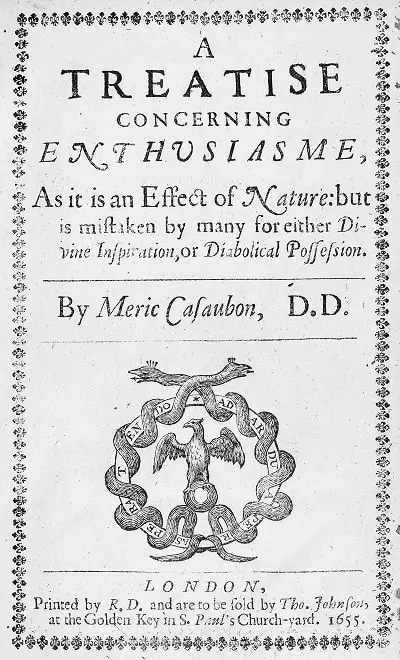
As I understand it, I could say that “magick” is the ability to recognize and understand the underlying forces of nature and the laws which govern them. With this ability, we can use our thoughts at will as the cause, that will change our environment.
Let’s see two, more adequate definitions.
“Magic is usually defined subjectively rather than by any agreed-upon content. But there is a wide consensus as to what this content is. Most peoples in the world perform acts by which they intend to bring about certain events or conditions, whether in nature or among people, that they hold to be the consequences of those acts.”
John Middleton “Theories of Magic”
Magick… “Is the Science and Art of causing Change to occur in conformity with Will”
Aleister Crowley “Magick in theory and practice”
So, to someone who understands these laws, magick is a very natural part of the universe.
On the other hand, people who do not understand these laws or who refuse to recognize them, see magick as a supernatural act performed against God and therefore unnatural.
Magick with K, The Correct Spelling
Why “Magick” – with “k”? What is the correct spelling of the word?
Magick (the occult kind, spelled with a ‘k’) is one of the oldest and most general of these systems. Magick is the study and application of psychic forces.
It uses mental training, concentration, and a system of symbols to program the mind. The purpose of magick is to alter the self and the environment according to the will.
The earliest use of the spelling of “magick” is that by Heinreich Cornelius Agrippa. Agrippa was a 16th-century physician, occultist, and philosopher.
Agrippa’s works (primarily his Three Books on Occult Philosophy) were arguably some of the most important works written in Western Occultism often being referred to as its foundation.
The spelling with a “k” was re-popularized by Aleister Crowley in the 20th-century and those groups that would later be influenced by his works. His public explanation for the spelling was to distinguished this with the magic of fairytales, folklore and stage magician slight-of-hand.
Another explanation from Kenneth Grant & John Symonds, says: “The Anglo-Saxon k in Magick, is a means of indicating the kind of magic which he performed. K is the eleventh letter of several alphabets, and eleven is the principal number of magick, because it is the number attributed to the Qliphoth – the underworld of demonic and chaotic forces that have to be conquered before magick can be performed.
K has other magical implications: it corresponds to the power or shakti aspect of creative energy, for k is the ancient Egyptian khu, the magical power. Specifically, it stands for kteis (vagina), the complement to the wand (or phallus) which is used by the Magician in certain aspects of the Great Work.”
While different magicians may have different reasons to spell something the way they do, there is meaning behind that and, it isn’t necessary for all the others to understand it.
Objectively it doesn’t matter. You can spell it as you prefer. The more important thing is, your magick to be effective.
Do you want to learn more about Magick? Check out our recommendations at “Magick Bookshelf” and many free resources at our “Free Magick Library“
A Brief History of Magick
Most of the magick we see today comes to us from ancient Egypt and Chaldea. The Chinese, Hindus, and Tibetans developed their own unique types of magick. Western magick was locked up by the Egyptian priests for thousands of years and then suppressed by the rise of Christianity.
It was not until medieval Europe that magical knowledge was rediscovered by the alchemists and Cabalists. Only during the past hundred years or so has western culture been open-minded enough to permit widespread investigation of the subject.
Only since the start of the twentieth century has science shown much interest in it at all.
Related reading: Magick through History – Opens in new tab
Origin of the word “Magick”
Ancient World
The etymology of the term magic can be traced back to the ancient language of Old Persian, which used the term magu, rendered as maguš (magician) and mágoi (magicians).
The etymology of this particular Persian term is unclear, although it appeared to refer to some form of religious functionary. A number of ancient Greek authors discussed these Persian mágoi in their works.
Among those to do so was the historian Herodotus, who claimed that the mágoi were one of seven Median tribes and that they served as functionaries at the court of the Achaemenid Empire, where they acted as advisers to the king.
According to Herodotus, these Persian mágoi were also in charge of various religious rites, namely sacrifices and the interpretation of dreams.
During the late sixth and early fifth centuries BCE, the Persian maguš introduced into the ancient Greek language as μάγος and μάγείά. In doing so it underwent a transformation of meaning, gaining negative connotations, with the magos being regarded as a charlatan whose ritual practices were fraudulent, strange, unconventional, and dangerous.
This change in meaning was influenced by the military conflicts that the Greek city-states were then engaged in against the Persian Empire.
Classical antiquity
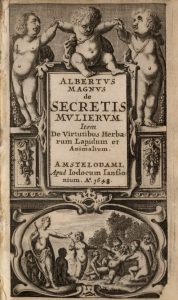
In the first century BCE, the Greek concept of the magos was adopted into Latin and used by a number of ancient Roman writers as magus and magia.
The Roman use of the term was similar to that of the Greeks but placed greater emphasis on the judicial application of it. Within the Roman Empire, laws would be introduced criminalizing things regarded as magic.
In the first century CE, the idea of magic was absorbed by early Christian authors and incorporated into their developing Christian theology. These Christians retained the Graeco-Roman negative connotations of the term and enhanced them by incorporating conceptual patterns borrowed from Jewish thought.
Thus, for early Christian writers like Augustine of Hippo, magic did not merely constitute fraudulent and unsanctioned ritual practices, but was the very opposite of religion because it relied upon cooperation from demons, the henchmen of Satan.
Ever since, the idea that magic is something defined in opposition to religion has been pervasive throughout Western culture.
Related Reading: “Church Versus Magic in The Early Middle Ages“ – Opens in new tab
Modern world
During the early modern period, the concept of magic underwent a more positive reassessment through the development of the concept of magia naturalis (natural magic).
This was a term introduced and developed by two Italian humanists, Marsilio Ficino and Giovanni Pico della Mirandola. For them, magia was viewed as an elemental force pervading many natural processes, and thus was fundamentally distinct from the mainstream Christian idea of demonic magic.
Their ideas influenced an array of later philosophers and writers, among them Paracelsus, Giordano Bruno, Johannes Reuchlin, and Johannes Trithemius.
According to the historian Richard Kieckhefer, the concept of magia naturalis took “firm hold in European culture” during the fourteenth and fifteenth centuries, although did not supplant traditional attitudes toward magic in the West, which remained largely negative.
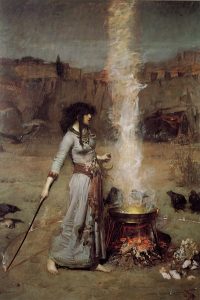
While the proponents of magia naturalis insisted that this did not rely on the actions of demons, critics disagreed, arguing that the demons had simply deceived these magicians.
By the seventeenth century, the concept of magia naturalis had moved in increasingly ‘naturalistic’ directions, with the distinctions between it and science becoming blurred. The validity of magia naturalis as a concept for understanding the universe then came under increasing criticism during the Age of Enlightenment in the eighteenth century.
In the discourse of early modern Europe, the term magic also continued to be used in a negative sense; Protestants often sought to denigrate Roman Catholic sacramental and devotional practices as being magical rather than religious.
Many Roman Catholics were concerned by this allegation and for several centuries various Roman Catholic writers devoted attention to arguing that their practices were religious rather than magical. In this way, the concept of magic was used to prescribe what was appropriate for religious belief and practice.
In the nineteenth century, a number of scholars adopted the traditional, negative concept of magic. That they chose to do so was not inevitable, for they could have followed the example adopted by prominent esotericists active at the time like Helena Blavatsky who had chosen to use the term and concept of magic in a positive sense.
Various writers also used the concept of magic to criticize religion by arguing that the latter still displayed many of the negative traits of the former.
An example of this was the American journalist H. L. Mencken in his polemical 1930 work Treatise on the Gods; he sought to critique religion by comparing it to magic, arguing that the division between the two was misplaced.
In contemporary contexts, the word magic is sometimes used to “describe a type of excitement, of wonder, or sudden delight”, and in such a context can be “a term of high praise”.
Do you want to learn more about Magick? Check out our recommendations at “Magick Bookshelf” and many free resources at our “Free Magick Library“
Why study Magick

- Fantasy can come alive through magick. Psychic phenomena can be controlled and be fun and helpful.
- Magick is beneficial. It can help you to have excellent health, and bring you good luck.
- Magick will give you immense power. But it’s not power over other people: It’s power over yourself. Power to decide what you want your life to be.
- Magick accelerates lateral and creative thinking. It allows you to tap the source of unconscious inspiration to come up with new ideas and vivid dreams of new possibilities.
- Magick and meditation hone your consciousness like a knife. With each meditation session, each ritual, you develop the most “magical” power of all: The ability to laser-focus 100% of your attention on one task at a time.
- The central goal of Magick is the connection to divinity, the words and labels are meaningless and often too culturally specific.
- Magick gives you control over your own existence. Magicians molds the random chaos of existence into the life they choose. They use magick to alter events and to achieve their goals.
- Magick shows how everything in the universe fits into place perfectly.
Related reading: Common Mistakes People Make When Learning Magick – Opens in new tab
Stay in Touch
 Join our newsletter by using the forms on this website or click here!
Join our newsletter by using the forms on this website or click here! Follow us on Google News
Follow us on Google News Follow us on Facebook
Follow us on Facebook
Resources: “The basics of Magick” By K. Amber, ‘Magick in theory and practice’ by Aleister Crowley (aff. link), www.wikipedia.org, NAOS Order of the nine angles. A Practical Guide to Modern Magick

